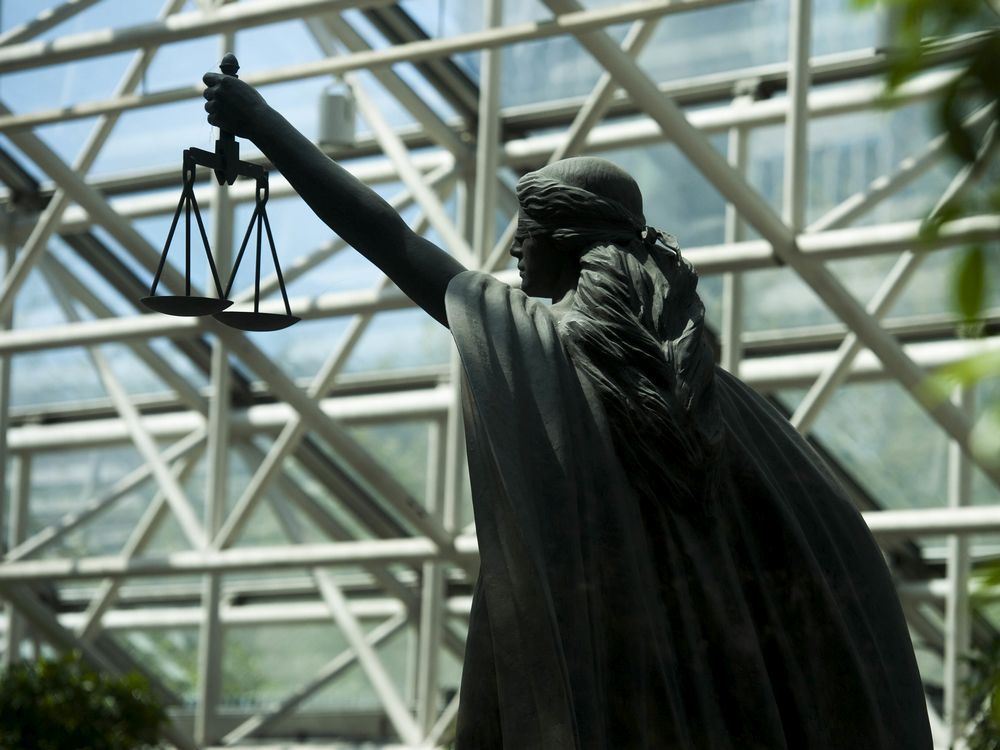Ian Mulgrew: Open courts, a thing of the past in B.C.?

Credit to Author: Ian Mulgrew| Date: Wed, 13 Nov 2019 01:55:33 +0000
Since the signing of the Magna Carta in the 13th century, the professed hallmark of our common-law justice system has been openness — the belief that sunlight was the best disinfectant.
Yet here we are 800 years later and the B.C. Court of Appeal continues to blithely draw the curtain across the workings of the legal system and cloak the conduct of the Crown.
That is not to say a modern King John is at work or nefarious would-be sheriffs of Nottingham afoot, but only that the judiciary seems to have lost sight of the pole star of justice — that it be seen to be done.
Closing a courtroom, issuing publication bans, keeping documents filed in trials or testimony secret used to be rare; it is becoming de rigueur.
As with proceedings in more and more cases — the phoney Canada Day terror plot, the Surrey Six murder prosecutions, and the landmark Reza Moazami pimping conviction, to name a few — I can’t tell you what’s going on.
Justice Gregory Fitch, supported by high bench colleagues Daphne Smith and Susan Griffin, penned the latest pull-down-the-shades ruling paying little more than lip service to the open court principle.
This should have been an extraordinary decision requiring thorough explanation.
I couldn’t find the underlying conviction, R. v. A.B., (2018 BCSC 1371, Revelstoke Docket 28872‑2), in the database — but there are many decisions removed for reasons known only to those in charge: Out of sight, out of mind.
The file was sealed by the trial judge and “a publication ban was imposed under s. 486.5 of
the Criminal Code restricting the publication, broadcasting or transmission in any way of evidence that could identify the party referred to in this judgment by the initials A.B. … This publication ban applies indefinitely unless otherwise ordered.”
The prosecution also applied to seal materials concerning the convict’s appeal.
“In its notice of application, the Crown seeks an order sealing: the transcript of the proceedings, the appeal book, the appellant’s factum, the respondent’s factum, and other materials filed or to be filed for use on the hearing of the appeal,” Fitch explained in the Oct. 18 decision published Wednesday.
“The application is not opposed by the appellant; indeed, I understand the appellant to support the making of a sealing order.”
I’m sure the guilty party would like as little scrutiny as possible of his or her transgressions.
“It is unnecessary for me to detail the background giving rise to this application,” Fitch said without irony.
Absolutely nothing has been public, as he knew: “Suffice it to say that the trial was heard in camera and that a sealing order was made with respect to the evidence of certain witnesses who testified at trial. … As I understand it, the order made in the court below bans publication of the identity of the appellant and any information that could disclose the appellant’s identity. That order has not been set aside and remains in force.”
Fitch cited the Supreme Court of Canada’s seminal 1994 decision about public access to the courts, Dagenais v. Canadian Broadcasting Corp.
But concluded: “Applying that framework and the two‑step test summarized in Sierra Club to the circumstances of this case, I am satisfied that the Crown has shown that the presumption that court records be open to the public must give way.”
So the file was verboten.
“I would not limit the sealing order to the specific materials identified by the Crown in its application, as the court file contains other documents and filings which must also be sealed to give effect to the rationale underlying the order,” Fitch added.
“As a consequence of this order, no materials in this court’s file shall be disclosed to any person, save for counsel for the parties and court personnel, except by further order of the court on application made on two days’ notice to the parties.”
Although not sought by either side, the justice kept an eye out for imaginative nosy-parkers.
It was also necessary, in Fitch’s view, to make an order “anonymizing the style of cause” in this appeal.
“I would order that the appeal proceed as Regina v. A.B. and that this style of cause be used on all publicly available lists reflecting the future sittings of this court, or a judge thereof, in connection with this matter.”
After all, if the convicted and the prosecutor agreed on secrecy, why should the public care?
CLICK HERE to report a typo.
Is there more to this story? We’d like to hear from you about this or any other stories you think we should know about. Email vantips@postmedia.com.